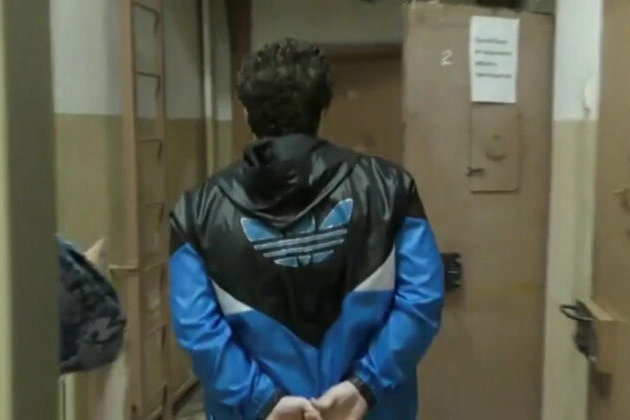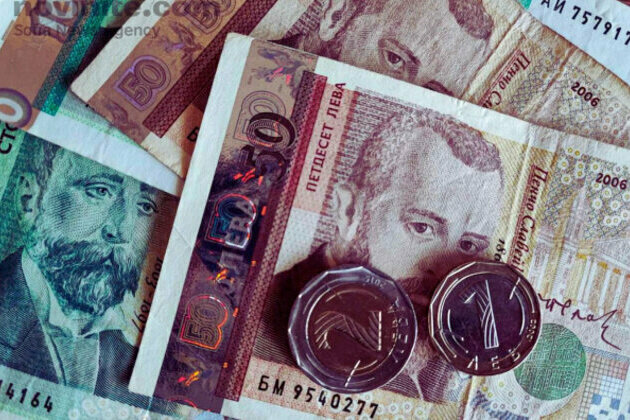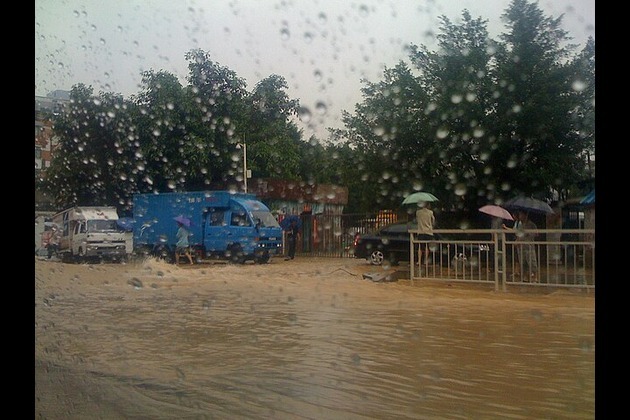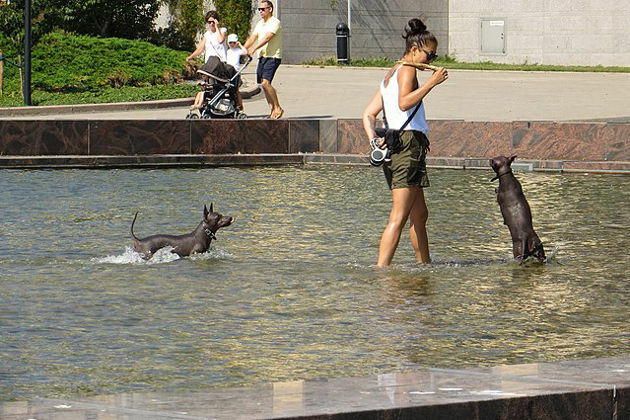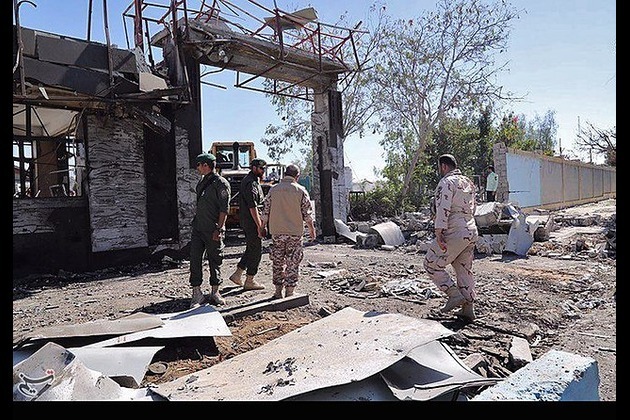Automation in Saltwater Disposal Operations
7Newswire
18 Feb 2023, 11:54 GMT+10

Saltwater waste disposal (SWD) is an important element of the oil and gas industry. During the work flow of oil and gas pumping, there is a processing phase in which they are separated and treated, and this results in leftover saltwater waste. The handling and disposal of this saltwater byproduct requires care and planning, and automation of these processes can be a game changer for oil and gas industry operations.
Let's dive in to learn about Automation in Saltwater Disposal Operations
Why is salt water disposal important?
The saltwater byproduct of oil and gas pumping is full of various chemicals (both organic and inorganic) and other contaminants such as oil. This saltwater, also called "brine", additionally has a salinity much higher than that the natural environment can handle, and it is considered hazardous.
Over the last few decades, policies have changed in how saltwater waste can be handled and disposed of. Before the 1970s, brine was dealt with in the least-cost manner. Most commonly, it was released right into the ground or into local rivers or lakes, contaminating ground and surface water and causing environmental repercussions. The EPA now regulates the disposal of saltwater, ensuring safe and environmentally friendly disposal. Such regulations vary by state.
How does salt water disposal work?
Methods of SWD can vary based on geographic region, available technology, and type of oilfield setup. Most often, disposal wells and some method of recycling are involved. Here are some of the more common disposal methods:
Common SWD Methods
Evaporation
If in an arid climate, some oilfield operations can utilize evaporation as a technique to manage saltwater waste. Water can be sent to large holding pits or evaporation ponds where water evaporates, leaving the salt and other contaminants behind. There is a downfall of this method, however, in that it takes a large surface area of land in order for evaporation to occur, and if waterfowl or other animals find their way to the pond, they can be harmed by saltwater waste.
Salt Water Disposal Wells
Salt water disposal wells are on of the most common methods of disposal. The geographic region of the oilfield determines whether the well is on-site, or if it needs to be transported to a well off-site. Sometimes, abandoned oil wells are converted into SWD wells, but they can also be constructed using multiple layers of casing to make sure the surrounding ground is not impacted. Most saltwater deep wells can be used for nearly 15 years, and upon reaching full capacity, they are shut off.
Recycling
Recycling of saltwater waste is typically an accompaniment to disposal methods. Essentially, salt water can be injected back into the well and re-processed for secondary oil recovery. There are many benefits of recycling: it can lower the volume of wastewater that needs disposal, increase total oil yield, and it is better for the environment.
Automation in Salt Water Disposal Operations
Saltwater management has been made easier in recent years by automation in different aspects of SWD operations. New innovative solutions can increase productivity and safety with 24/7 monitoring, and automatic and remote pump controls. Automation can reduce the need for on-site workers and manual performance of tasks needed to run the operation.
Pump Controls
Automated and remote pump controls can bring consistency and reliability to your SWD operation. Particularly in the case of disposal using deep wells, there are various pump systems that need to perform correctly to keep operations running.
With automatic and remote pump controls, steady flow (whenever possible) can be ensured when disposing water into wells. This is important because constant flow of water can prevent well bore damages, and increase the life of the well in the case of well formations with lower stability.
These pump controls can also increase efficiency, energy savings, and over-all production when operating water injection wells. Pressure sensors and pump controls can be linked to automatically stop and start the pump systems. By monitoring pressure, pumps can run automatically when there is product to be drawn out, and shut down for the formation to re-stabilize.
Tank Sensors
When using storage tanks in your saltwater waste disposal system, remote sensors can be a valuable asset. The biggest benefit of these is that it can prevent spills, and when paired with pump controls, the operation can be shut down when tank levels get too high.
Remote tank sensors allow monitoring when operators are not on-site. This means costly trips out to remote locations to manually check tank levels can be reduced. Additionally, the automatic response of associated pump controls allow a more rapid response to conditions that warrant action.
Promoting Safety in SWD Operations
Automation software and associated sensors promote safety in SWD operations and can prevent spills, equipment downtime, and prevent production loss risk of fines for environmental damages associated with spills.
By keeping up with water levels, pressure, and pump health, on-site conditions can be monitored allowing rapid and informed action to be taken when necessary to prevent costly spills or other accidents in the oilfield. Additionally, some software provides alarm systems that can alert both on-site and remote workers to an incident that may occur before conditions become hazardous.
How to choose the right SWD Automation system
When it comes to choosing an automation system, whether that be remote pump controls, well sensors, etc., it is important to evaluate your needs and find the solution best for your operation.
ReignRMC offers a variety of smart solutions for remote monitoring of tank systems, pump control, and more. Get instant updates on your tanks and equipment directly to your phone. Have access to your tanks and critical assets from anywhere with ReignRMC's smart solutions. Share
Share
 Tweet
Tweet
 Share
Share
 Flip
Flip
 Email
Email
Watch latest videos
Subscribe and Follow
Get a daily dose of Switzerland Times news through our daily email, its complimentary and keeps you fully up to date with world and business news as well.
News RELEASES
Publish news of your business, community or sports group, personnel appointments, major event and more by submitting a news release to Switzerland Times.
More InformationEurope Business
SectionSpies from EU aspirant arrested in Moscow FSB
The Russian security service has learned the identities of Moldovan intelligence officers after arresting two agents they were handling...
EU becoming an extension of NATO Lavrov
Russias foreign minister has condemned the economic unions radical transformation into an aggressive military bloc The European Union...
Brad Pitt recalls "most unhealthy time" of his life, until David Fincher "reinvigorated" his love of acting with 'Se7en'
Washington DC [US], June 24 (ANI): Hollywood star Brad Pitt recalled 'the most unhealthy time' of his life in 1994, till he got the...
The Lowdown On This Week's NATO And EU Summits
Welcome to Wider Europe, RFE/RL's newsletter focusing on the key issues concerning the European Union, NATO, and other institutions...
Hungary's Veto Casts Shadow Over EU Enlargement Talks
A day after the NATO summit in The Hague ends, EU leaders will take the short journey south to Brussels for their regular summer European...
Bulgaria and the Euro: What Happens to National Monetary Sovereignty
One of the most debated topics around Bulgaria's upcoming transition from the lev to the euro is whether the country is giving up its...
International
SectionMultiple Israeli troops die as armored personnel carrier is blown up in Gaza
KHAN YOUNIS, Gaza - Seven Israeli soldiers were killed in a large explosion in southern Gaza's Khan Younis area on Tuesday night,...
Khamenei remains in hiding as clerics fast-track succession plans
DUBAI, U.A.E.: Iran's top clerics are quietly accelerating succession plans for Supreme Leader Ayatollah Ali Khamenei, who was threatened...
Monsoon floods batter China, raising climate concerns
BEIJING, China: Extreme weather is once again testing China's resilience, as intensifying monsoon rains trigger floods across major...
UK and France issue heat warnings as temperatures climb
LONDON/PARIS: British and French authorities have warned people to stay safe as an early summer heat wave brings unusually high temperatures...
Muslim bloc calls on Israel to sign Nuclear Non-Proliferation treaty
ANKARA, Turkey: Amid rising tensions in the Middle East, the Organisation of Islamic Cooperation (OIC) announced it would form a new...
Trump goes on social media to announce Israel-Iran ceaeefire
WASHINGTON DC, - U.S. President Donald Trump has claimed a ceasefire has been reached between Israel and Iran. He made the claim on...

